NEBALA: Kickstarter-Kampagne für „Rites of Passage“
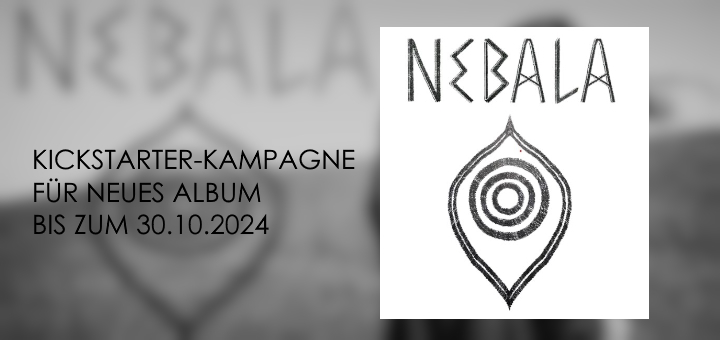
(english version below)
Ein Gespräch mit Jonas Lorentzen über das Album und die Kampagne
Jonas Lorentzen (ex-HEILUNG) und Kreativer hinter NEBALA, hat für das zweite Album, das den Titel „Rites of Passages“ tragen wird, eine Kickstarter-Kampagne gestartet, die noch bis zum 30.Oktober 2024 läuft.

Nachdem NEBALA im Juli 2022 das Album „Lustuz Laþu Wōþuz Alu“ herausgegeben haben, folgten zwei großartige Shows auf dem Castlefest (s. hier) und dem Midgardsblót-Festival. Die Show dort wurde aufgenommen und im April 2023 als „Live at the Blót“ als Album veröffentlicht.
„Rites of Passage“ entspringt einer Idee, die Jonas Lorentzen bereits vor „Lustuz Laþu Wōþuz Alu“ hatte. Im Mittelpunkt steht die Bedeutung von Übergängen und Meilensteinen im Verlauf des Lebens.Und auch darum, die Riten, die ehemals solche Übergänge begleiteten, nicht nur als Tradition aufzufassen, sondern als eine Form der Gestaltung, die uns in der modernen Hektik wieder einen Rhythmus gibt und uns mit anderen und der Natur verbindet.
Ein weiterer besonderer Faktor ist, dass Christopher Juul von HEILUNG zusammen mit Jonas Lorentzen das Album fertigstellen und es produzieren wird.
Fragen und Antworten zum Album
Worum es bei „Rites of Passage“ geht, woher die Idee kommt, welcher Weg bisher bestritten wurde, waren Themen im Gespräch mit Jonas. Nachdem NEBALA verschiedene Formen der Live-Shows gespielt haben (u.a in reduzierter Besetzung auf dem Festival Mediaval oder als „Blót Rave“ auf dem Midgardsblót-Festival), hat Jonas Lorentzen darüber nachgedacht, wie und in welcher Form es mit NEBALA weitergehen sollte.
Er sagte:
„Wir haben ein paar verschiedene Sachen ausprobiert, Kjell [Braaten] und Rob [van Barschot] aber es hat nicht wirklich geklappt. Also habe ich es letztendlich selbst in die Hand genommen, ein neues Album zu machen. Und ich habe mich mit einem italienischen Multiinstrumentalisten [Ghilli Prati] zusammengetan. Er spielt unglaublich viele Instrumente. Von Perkussionsinstrumenten westafrikanischer Tradition bis hin zu Dudelsäcken. Und er ist ein guter Violinist.
Und hier sind wir, ich starte NEBALA in gewisser Weise neu, könnte man sagen.“
NEBALA neu starten
Du hast die Kickstarter-Kampagne einerseits gestartet, um die zu beteiligen, an die das Album gerichtet ist, aber auch, weil sich der ursprüngliche Plan, wieder mit By Norse Music zusammenzuarbeiten, nicht umsetzen ließ.
By Norse hatten ein Ziel und ich wollte etwas anderes machen. Wir konnten kreativ nicht mehr zusammenfinden.
Zu dem Zeitpunkt hattest du aber schon einen Teil des Albums entwickelt.
Ja, ich stand da mit einem Produkt, bzw. einem Teil eines Produkts, und hatte im Grund keine Möglichkeit, es fertigzustellen.
Aber dann hattest du die Idee, Christopher Juul zu fragen?
Ich habe Kontakt zu Christopher, meinem alten Freund von HEILUNG, aufgenommen und zunächst versucht herauszufinden, ob er Interesse hätte, dieses Album mit mir fertigzustellen. Und es stellte sich heraus, dass er sehr interessiert war. Ihm gefiel wirklich, was er hörte, und er dachte, es wäre eine lustige Idee, wenn er und ich wieder zusammenarbeiten würden, denn das hatten wir seit unserer Zusammenarbeit mit Heilung nicht mehr getan.
Also hat sich aus dem Negativen doch noch etwas Positives ergeben.
Ich musste mir etwas anders überlegen und dann bot sich mir die Gelegenheit, mit jemandem zusammenzuarbeiten, den ich für einen der großartigsten Produzenten halte, die ich kenne.
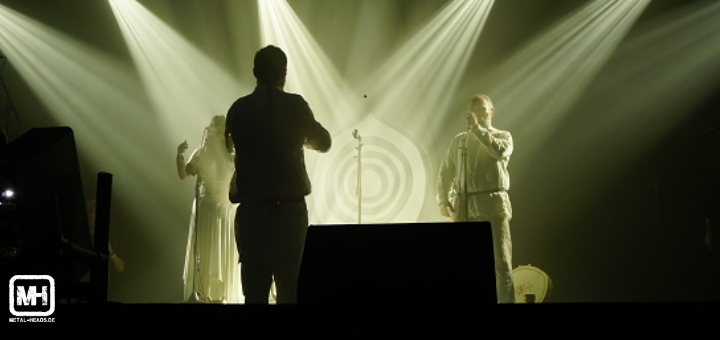
Die wichtigen Punkte im Leben
Um welche Art Übergänge geht es in „Rites of Passage“?
Bereits bevor ich an „Lustuz Laþu Wōþuz Alu“ gearbeitet habe, wollte ich ein Album machen, das im Grunde den wichtigen Punkten eines Lebens gewidmet ist und darüber, wie wir in unserer modernen Welt vergessen haben, diese verschiedenen Übergangsriten, die wir alle durchlaufen, auf angemessene Weise zu feiern. Das war also meine ursprüngliche Idee für NEBALA. Aber mir wurde klar, dass dies für den Anfang ein zu großes Projekt war. Denn es würde im Grunde von der Geburt bis zum Tod reichen. Und dazu wäre noch eine umfangreiche Recherche notwendig gewesen. Nun sind einige Jahre vergangen, ich habe die Recherche abgeschlossen und bin bereit, dieses Album zu veröffentlichen, das Übergangsriten gewidmet ist.
Welchen Blick auf die Passagen und Riten hast du genommen? Eher europäisch geprägt oder aus indischem Blickwinkel, den du ja beim letzten Album auch genutzt hast?
Das ist eine interessante Frage. Diesmal wird es tatsächlich noch vielschichtiger. Ich werde mich auf indische Mystik, indische Gesänge, beziehen, ich werde mich auf frühchristliche Mystik stützen, wie die Sachen der Gnostiker, die zu Beginn der frühen Tage der Entstehung des Christentums ein sehr seltsamer, ziemlich animistischer christlicher Kult waren. Ich verwende Material aus den Meditationen von Marcus Aurelius. Natürlich verwende ich auch nordisches Material. Es gibt auch einiges aus der Hávamál darin.Ich verwende sogar einen alten Kinderreim, der in der Sprache der Insel ist, von der ich stamme. Man könnte sagen, den Dialekt, aber es ist eigentlich eine ganz andere, eine ganz andere Sprache. Ich verwende also alle möglichen Dinge.
Die ewige Natur der Dinge
Das ist ein weitgesteckter Rahmen, was das Material für die Umsetzung angeht. Übergänge spielen sowohl im Christentum als auch im Hinduismus, Buddhismus, Animismus eine wichtige Rolle in der Strukturierung des Lebens. Und Rituale als Form, sie sich bewusst zu machen, sie zu feiern oder bei ihrer Bewältigung zu helfen. Auch Psychologie und Soziologie beschäftigen sich damit.Welche Übergänge oder Wendepunkte des Lebens werden wir auf dem Album wiederfinden?
Für jeden Menschen, egal woher er kommt, gibt es diese wichtigen Punkte im Leben.
Das Album beginnt damit, dass der Zuhörer in die Leere versetzt wird, die da ist bevor man ins Leben eintritt. Und dann wird er musikalisch aus dieser Leere herausgeholt. Es gibt ein Lied, das der Geburt gewidmet ist. Und eines über die Kindheit, der ersten Lebensphase. Weiter geht es mit einem Lied, das dem ersten Übergangsritus gewidmet ist, wenn man von der Kindheit ins Erwachsenenalter oder ins Erwachsensein übergeht. Und es gibt Lieder über das erste Mal des Verliebtseins, über das erste Kind. Eines über Alter und Weisheit und ein Lied über den Tod. Und dann geht man wieder in die Leere.

D.h. es geht um Reifung und Veränderung. Und weil dies auf jeden Menschen zutrifft, war es dir wichtig, musikalisches und philosophisches Material aus der ganzen Welt zu verwenden?
Ja, z.B. was die Instrumentierung angeht, verwenden wir Instrumente von überall her: aus Westafrika, alle möglichen europäischen Instrumente, sowohl traditionelle als auch moderne.
Gibt es weitere Unterschiede zum ersten Album?
Im Grunde wird es klanglich noch abwechslungsreicher sein, da es mehr Melodien und melodische Instrumente gibt.
Abwechslungsreiche Klanglandschaften voller Emotionen
Also können wir Klänge erwarten, die Rhythmen und Melodien sowohl aus Skandinavien, Indien und Afrika miteinander verbindet?
Ja, es wird ein vielfältiges Klangerlebnis geben!
Ich möchte noch einmal auf die Rituale zu den Übergängen zurückkommen. Welche Bedeutung haben sie?
Wenn man Glück hat, gibt es einen Ort, an dem die eigene Tradition oder der Übergang von der Kindheit zum Erwachsenenalter gebührend gefeiert wird. Oder sagen wir mal, es sollte einen geben. Und ja, wir haben dieses Problem, dass wir nie wirklich begreifen, was es eigentlich bedeutet, ein Mensch zu sein, weil diese Übergangsriten nicht mehr da sind, so wie sie es einmal waren.
Unsere moderne Gesellschaft hat ein Problem mit Reifung. Sowohl der emotionalen als auch der spirituellen Reifung.
Denkst du dabei an 50 und 60jährige, die noch so sein wollen wie Jugendliche?
Ja, so wie C.G. Jung es in seinen Arbeiten zum Konzept der ‚ewigen Jugend‘ gezeigt hat, bei dem es um den Widerstand gegen Veränderungen geht und die Angst, sich der Verantwortung zu stellen.
Verstehe ich es richtig, dass du mit der Musik den Lebensabschnitten und den Übergängen eine Bedeutung geben und sie ‚erlebbar‘ machen willst? Dass man, indem man in die Musik eintaucht, sich quasi auf eine Reise durch das Leben begibt?
Letzten Endes hoffe ich, dass die Musik für sich selbst sprechen kann und die Leute nicht einmal unbedingt wissen müssen, worum es geht, um Kindheitsgefühle zu bekommen, das Gefühl des Verliebtseins zu erleben, ein Gefühl dafür zu bekommen, wie es sein könnte, ein Kind zu gebären oder sogar bei der Geburt dabei zu sein. Diese Klanglandschaften zu schaffen, damit diese Art von Emotionen entstehen, ist letzten Endes das Hauptziel der Kunst. Aber dann wird es all das zusätzliche Zeug geben, mit dem die Leute Spaß haben können, wenn sie tiefer gehen und tiefer erforschen wollen.
Ich finde, das ist ein gutes Schlusswort und du hast neugierig auf das Album gemacht! Ich hoffe, dass es mit und durch die Unterstützung der zukünftigen Hörer und derjenigen, denen das Album „Lustuz Laþu Wōþuz Alu“ oder „Live at the Blót“ gefallen hat oder die NEBALA live erleben durften, realisiert werden kann.
Und hier geht es zur Kickstarter-Kampagne: NEBALA
NEBALA: Kickstarter campaign for “Rites of Passage”
A conversation with Jonas Lorentzen about the album
Jonas Lorentzen (ex-HEILUNG) and creative behind NEBALA, has started a Kickstarter campaign for the second album, which will be titled “Rites of Passages”, and will run until October 30, 2024.

After NEBALA released the album “Lustuz Laþu Wōþuz Alu” in July 2022, two great shows followed at the Castlefest (see here) and the Midgardsblót Festival. The show there was recorded and released as an album in April 2023 as “Live at the Blót”.
“Rites of Passage” stems from an idea that Jonas Lorentzen had before “Lustuz Laþu Wōþuz Alu”. The focus is on the meaning of transitions and milestones in the course of life.
And also on seeing the rites that once accompanied such transitions not just as tradition, but as a form of design that gives us a rhythm again in the modern hectic world and connects us with others and nature.
Another special factor is that Christopher Juul from HEILUNG will finish the album together with Jonas Lorentzen and produce it.
Questions and answers about the album
What “Rites of Passage” is about, where the idea came from, and the path they have taken so far were the topics discussed with Jonas.
After NEBALA played various forms of live shows (including in a reduced line-up at the Festival Mediaval or as “Blót Rave” at the Midgardsblót Festival), Jonas Lorentzen thought about how and in what form NEBALA should continue.
He said: “We tried a few different things, Kjell [Braaten] and Rob [van Barschot], but it didn’t really work. So I finally took it upon myself to make a new album. And I teamed up with an Italian multi-instrumentalist [Ghilli Prati]. He plays an incredible number of instruments. From percussion instruments of West African tradition to bagpipes. And he’s a good violinist. And here we are, I’m restarting NEBALA in a way, you could say.”
Restart NEBALA
You started the Kickstarter campaign partly to involve those the album is aimed at, but also because the original plan to work with By Norse Music again could not be implemented.
By Norse had a goal and I wanted to do something different. We could no longer find common ground creatively.
But by that point, you had already developed part of the album.
Yes, I was standing there with a product, or rather part of a product, and basically had no way of finishing it.
But then you had the idea to ask Christopher Juul?
I got in touch with Christopher, my old friend from HEILUNG, and first tried to find out whether he would be interested in finishing this album with me. And it turned out that he was very interested. He really liked what he heard and thought it would be a fun idea for him and me to collaborate again because we hadn’t done that since we worked with Heilung.
So something positive came out of the negative.
I had to think about something different and then the opportunity came up to work with someone who I think is one of the greatest producers I know.

The important points in life
What kind of transitions is Rites of Passage about?
Even before I started working on „Lustuz Laþu Wōþuz Alu“, I wanted to make an album that was basically dedicated to the important points in life and how in our modern world we have forgotten to celebrate these different rites of passage that we all go through appropriately.
That was my original idea for NEBALA. But I realized that this was too big a project to start with. Because it would go from birth to death. And that would have required extensive research.
Now a few years have passed, I have completed the research and am ready to release this album dedicated to rites of passage.
What view did you take of the passages and rites? More European or from an Indian perspective, which you also used on the last album?
That’s an interesting question. This time it will actually be even more complex. I’ll draw on Indian mysticism, Indian chants, I’ll draw on early Christian mysticism, like the stuff of the Gnostics, who were a very strange, quite animistic Christian cult at the beginning of the early days of the formation of Christianity. I use material from the Meditations of Marcus Aurelius. Of course, I use Nordic material too. There’s some stuff from the Hávamál in there too.
I even use an old nursery rhyme which is in the language of the island I’m from. You could say the dialect, but it’s actually a very different language. So I use all kinds of things.
The eternal nature of things
This is a broad framework in terms of the material for implementation.Transitions play an important role in the structuring of life in Christianity as well as in Hinduism, Buddhism and animism. And rituals as a way of becoming aware of them, celebrating them or helping to cope with them. Psychology and sociology also deal with this. Which transitions or turning points in life will we find on the album?
For every person, no matter where they come from, there are these important points in life. The album begins by placing the listener in the emptiness that is there before they enter life. And then they are musically taken out of this emptiness. There is a song dedicated to birth. And one about childhood, the first phase of life. It continues with a song dedicated to the first rite of passage when you move from childhood to adulthood or adulthood. And there are songs about falling in love for the first time, about the first child. One about age and wisdom and a song about death. And then you go back into the void.

In other words, it’s about maturation and change. And because this applies to every person, was it important to you to use musical and philosophical material from all over the world?
Yes, for example, when it comes to instrumentation, we use instruments from all over: from West Africa, all kinds of European instruments, both traditional and modern.
Are there any other differences from the first album?
Basically, it will be even more varied in terms of sound, as there are more melodies and melodic instruments.
Diverse soundscapes full of emotions
So can we expect sounds that combine rhythms and melodies from Scandinavia, India and Africa?
Yes, there will be a finely varied sound experience!
I would like to come back to the rituals of transition. What significance do they have?
If you are lucky, there is a place where your own tradition or the transition from childhood to adulthood is duly celebrated. Or let’s say there should be one. And yes, we have this problem that we never really understand what it means to be human because these rites of passage are no longer there as they once were. Our modern society has a problem with maturation. Both emotional and spiritual maturation.
Are you thinking of 50 and 60-year-olds who still want to be like teenagers?
Yes, like C.G. Jung showed it in his work on the concept of ‚eternal youth‘, which is about resistance to change and the fear of facing up to responsibility.
Do I understand correctly that you want to use music to give meaning to the stages of life and the transitions and make them ‚experienceable‘? That by immersing yourself in the music you are setting off on a journey through life?
Ultimately, I hope that the music can speak for itself and people don’t even necessarily have to know what it is about to get childhood feelings, to experience the feeling of being in love, to get a feeling of what it might be like to give birth to a child or even to be present at the birth. Creating these soundscapes so that these kinds of emotions arise is ultimately the main goal of art. But then there will be all the extra stuff that people can have fun with if they want to go deeper and explore more deeply.
I think that’s a good closing statement and you’ve made people curious about the album! I hope that it can be realized with and through the support of future listeners and those who liked the album “Lustuz Laþu Wōþuz Alu” or “Live at the Blót” or who were able to experience NEBALA live.
And here is the Kickstarter campaign: NEBALA
NEWSLETTER. FREITAGS. KOSTENLOS.
Bildquellen
- jonas lorentzen 2024 1: Jonas Lorentzen Music
- nebala castlefest 19: birgit@metal-heads.de
- jonas lorentzen 2024 2: Jonas Lorentzen Music
- nebala kickstarter teil 2: Nebala


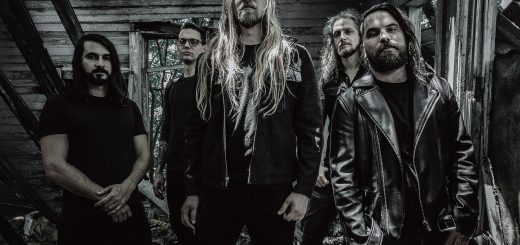
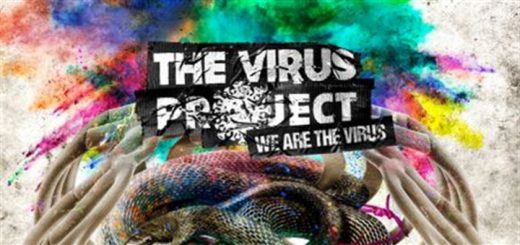
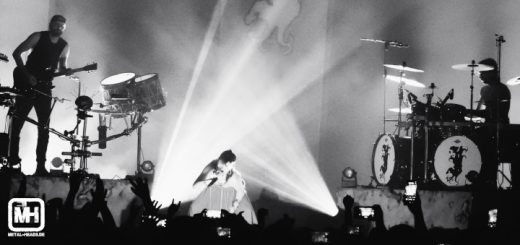
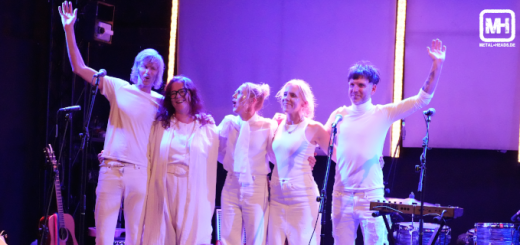


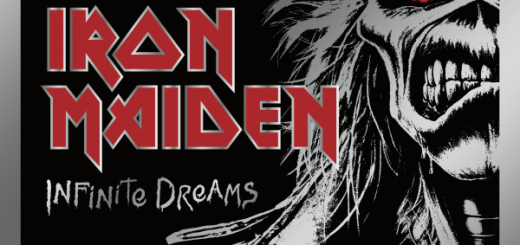
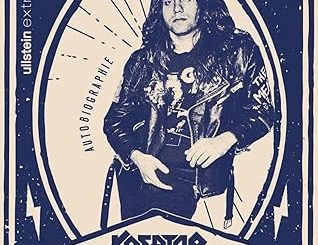
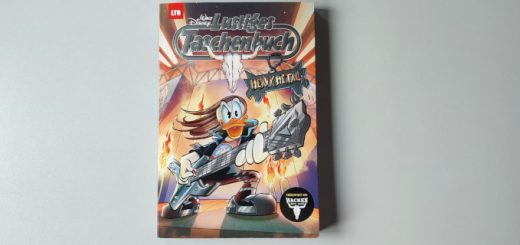
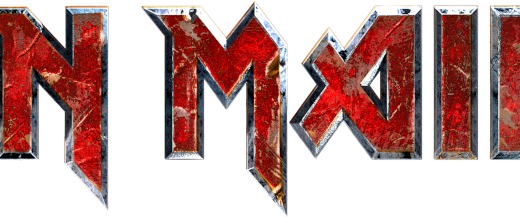

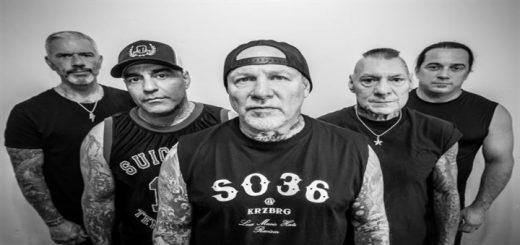
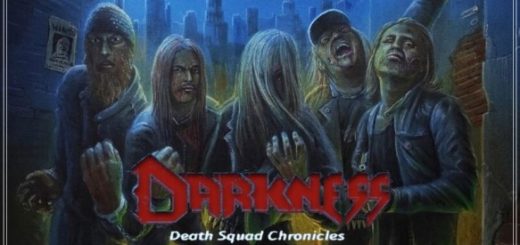
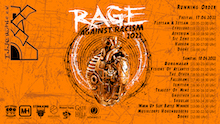










Neueste Kommentare